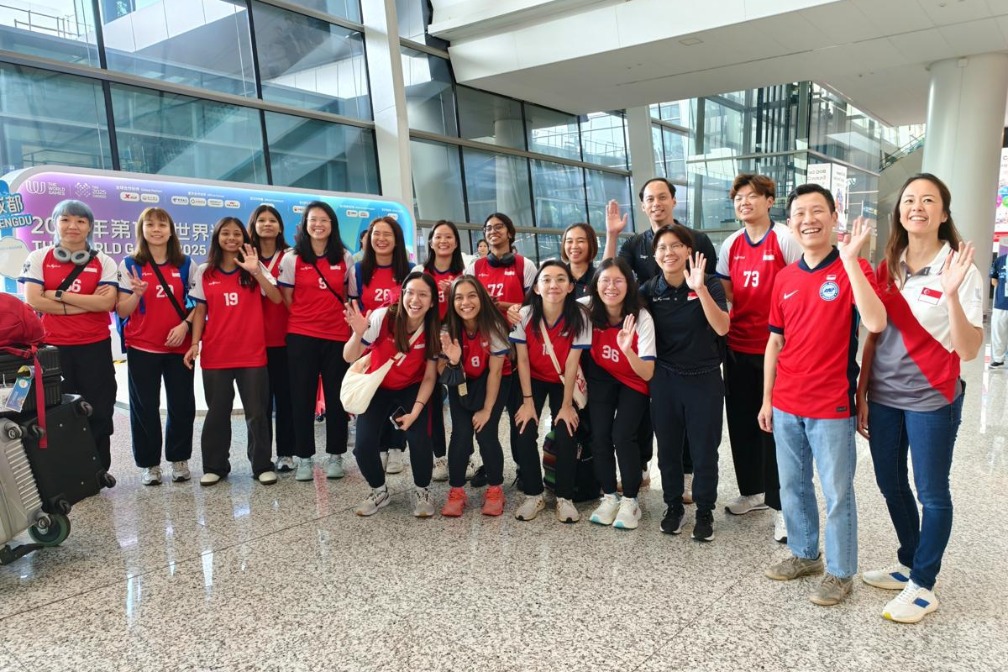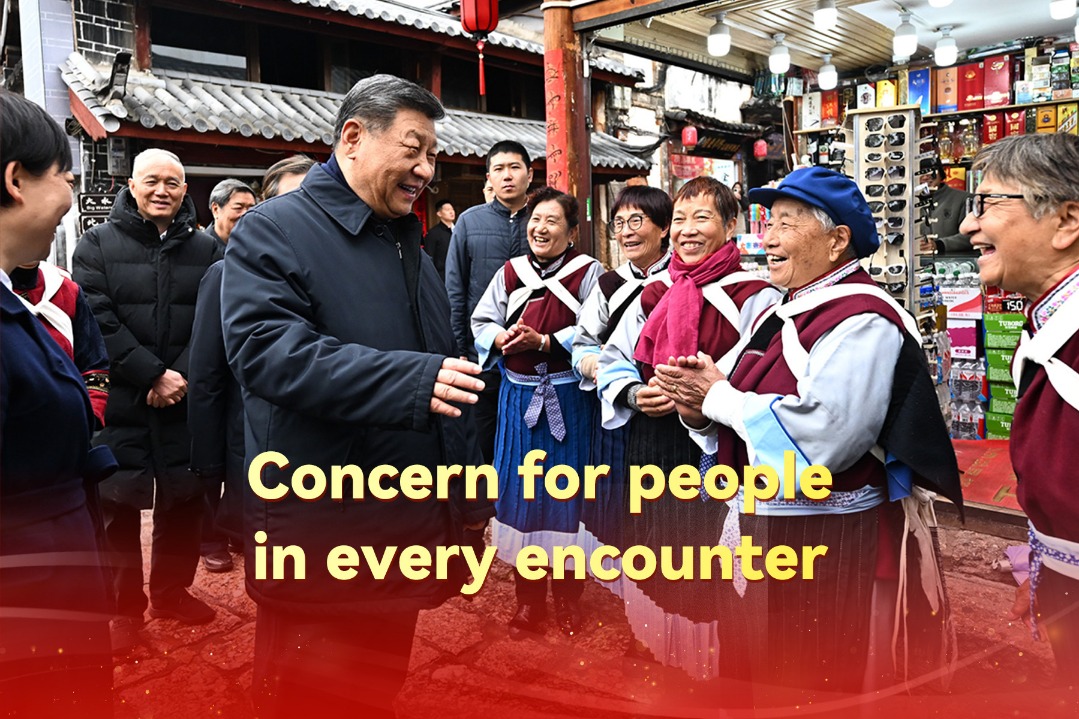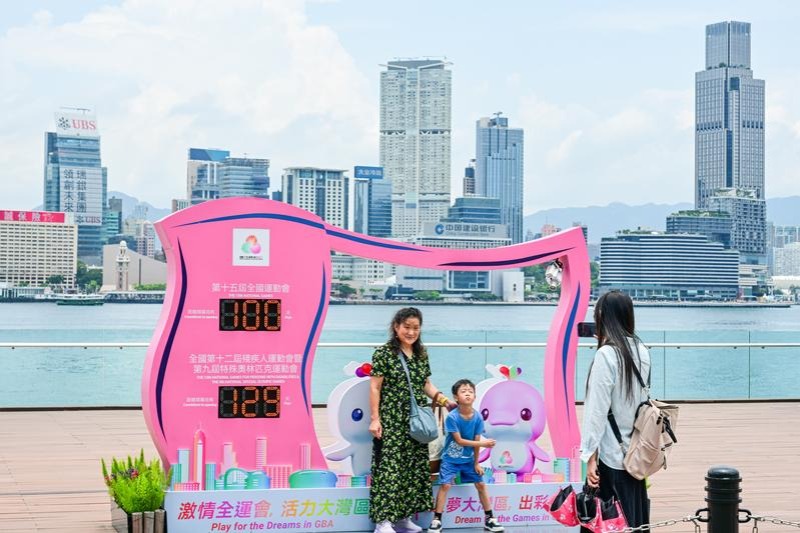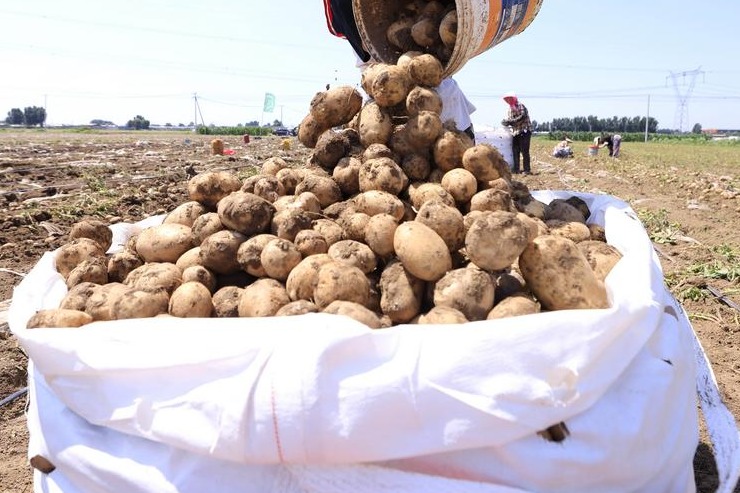Rediscovering their roots
Villages succeed at rural vitalization by tapping their rich heritage, which has prompted young residents to return from urban areas to help preserve and promote local culture.





Editor's note: With its people-centered philosophy, China will build the eastern province of Zhejiang into a demonstration zone for achieving common prosperity. This series looks at the latest steps taken in various areas to meet that goal.
As a tea farmer, Jiang Xiaomei had worked in an enviable natural setting of misty mountains with crisp, clear air.
But cultivating the local specialty was tough. The leaves she picked from her 0.4-hectare plot helped her make about 12,000 yuan ($1,880) a year.
"It was very basic then. Things have improved significantly with the changes in the village. Income can be up to 40,000 yuan a year now," said Jiang, 49.
For the past two years, Jiang has been perfecting her skills at a workshop for traditional plant-based tie-dyeing. She also teaches the craft, which is listed as part of the local intangible cultural heritage, to urban visitors-up to 100 a day during peak travel periods.
"I've been dyeing our local fabrics since I was a child. It's good that I can help preserve and promote our heritage and make a good living from it," Jiang said.
Her experience reflects the impressive developments in Pingtian village of Songyang county in Lishui, Zhejiang province, in line with a national effort to close rural-urban gaps and improve livelihoods with the aim of common prosperity.
In August, a meeting of the Central Committee for Financial and Economic Affairs, which was chaired by President Xi Jinping, who is also general secretary of the Communist Party of China Central Committee, outlined steps to promote common prosperity through high-quality growth, calling for a phased approach to meet the goal.
With the drive for common prosperity expected to be comprehensive and long-term, the country is set to pursue it in a gradual and progressive manner, involving suitable areas that can offer replicable practices and models.
Zhejiang, one of the country's most developed provinces, has been designated a demonstration zone to forge a new path for inclusive growth.
The province aims to achieve common prosperity by 2035, with its per capita gross domestic product and the incomes and standards of living of urban and rural residents reaching those of developed countries.
As a key indicator of balanced development, Zhejiang's income ratio between urban and rural residents fell to 1.96:1 last year, significantly lower than the national level, according to provincial authorities.
Digitalization is set to become a major driver of growth in the province, empowering poverty reduction, public services and grassroots governance toward economic efficiency and social progress.
Showcasing history
In Songyang, rural vitalization measures include major projects that have won accolades for protecting the environment and the traditions of its villages, at the same time providing novel ways for its residents to help build and retain their economic, social and cultural bonds. To that end, its tourism sector includes arts and crafts workshops like those employing Jiang Xiaomei, as well as accommodations, food and travel options that showcase the county's pristine setting and history.
The village of Pingtian, which is in northeast Songyang, 15 kilometers from the county seat, has over 300 residents and more than 120 households. Its structures date back 900 years to imperial times. The village's rural heritage and cultural attractions helped it become a major scenic spot in 2018, with tourism offerings now including at least five farmstay facilities and 145 beds.
Songyang native Ye Dabao was drawn to Pingtian seven years ago and decided to take a personal stake in its development. She left her city retail job to invest in the village hospitality sector.
Her investments soon grew to cover cultural tourism, ethnic arts, foods, beverages and green agriculture products, leading to the establishment of her Pingtian Cloud Village brand. Like many young entrepreneurs who return to their community to contribute to its growth, she taps the latest e-commerce trends and other digital and innovative business practices. "I'm just returning to my roots in the countryside," the 33-year-old said. "It's been very encouraging to be part of the progress here, with the support from the local authorities and residents."
Her brand, which started with 10 million yuan of investment in 2014, has been making healthy returns, reaping about 5 million yuan last year, she said.
Tsinghua University architecture professor Luo Deyin led a team of design luminaries to help turn Pingtian's village homes and structures into green attractions, with many of them managed and operated by Ye and other entrepreneurs.
The sustainable development project has been a step-by-step community effort, with crucial contributions and feedback from its urban and rural participants and stakeholders, Luo said.
An "interaction hub" has been identified in the central part of the village, where visitors and villagers can meet and communicate on a slope surrounded by homes, tourist lodgings and amenities. This epitomizes the organic development behind the project's success, said Luo, who is also deputy head of a Ministry of Housing and Urban-Rural Development panel of experts on traditional villages.
"Songyang boasts a good natural environment, but its economy had lagged somewhat behind those in other areas. It was perhaps a change in mindset, to really leverage its advantages, that brought about all these changes," he said.
Chen Jianwu, Pingtian's Party secretary, said the urban and academic expertise used in refurbishing the village's previously dilapidated structures and in retaining its rural charm complements local government policy and support for vitalizing the countryside, drawing young talent back to fuel the local economy.
"Our villagers can get good dividends when businesses manage their property, on top of the related job opportunities; most of them have had at least a twofold increase in their incomes. The beauty of our village is retained, and our elderly are well taken care of," Chen said.
Rural vitalization efforts in line with the push for common prosperity have brought similar achievements in nearby Chenjiapu village.
The scenic mountain village, which is 800 meters above sea level, is home to about 850 people in 336 households. Its history and traditions date to the late Yuan (1271-1368) and early Ming (1368-1644) dynasties.
Since 2016, rural development measures and investments have ranged from ecotourism to sustainable agriculture and cultural enterprises that bank on the area's natural beauty and rich heritage. The village received more than 600,000 visitors in 2018, contributing to total turnover of more than 30 million yuan, according to local authorities.
The latest investments include about 20 million yuan for travel lodgings, creative arts studios and sweet potato processing facilities.
Farming cooperatives that follow green practices, such as avoiding the use of pesticides and fertilizers, have helped maximize efficiency through the reclamation of high-altitude plots. This has nearly doubled the income from sweet potato production to about 40 yuan a kilogram-an increase of 5,000 yuan for every 0.067 hectares, according to local authorities.
Further measures to develop sustainable agriculture that tap local ecological advantages include a Chinese herbal medicine base covering more than 5 hectares and a rice planting zone of 4 hectares, with food processing facilities for popular bamboo shoots, white radish and highland white tea products.
Village head Bao Chaohuo said rebuilding efforts have retained the village's original allure, with many young residents returning from urban areas to develop the local culture. This has resulted in touches of modern aesthetics, lifestyles and practices in restaurants, retail stores and other tourist attractions.
"More than 160 people have returned to do their part for our growth," Bao said. "Our history dates back centuries, but the residents and visitors have brought renewed vigor toward the next stages of development."
Chenjiapu's top attractions include the Librairie Avant-Garde bookstore, which covers 300 square meters and has 30,000 books and related products. Employee Zhao Jin, 28, said the store, nestled at a corner of the village with breathtaking views of the mountains and valleys, receives up to 50,000 visitors during the travel peak, with revenue this year already hitting 1.5 million yuan.
"You can see how real rural vitalization occurs here, with the development of the economy and culture happening hand in hand," Zhao said.
Playing active role
Cheng Changying, 51, another Songyang resident, has also successfully led rural development projects in the county, such as building partnerships with farmers to promote their agricultural products via e-commerce platforms.
After successful textile and other business ventures in cities, Cheng decided in 2016 to return to his home county to invest, and play an active role, in its rural development.
His major projects include the refurbishment of a heritage ancestral temple in the county seat, turning it into a hub of art and cultural exchange. The site, which is spread over more than 800 sq m, opened to the public in 2019. It hosts at least four large-scale exhibitions a year, with facilities for folk events, artists' residence and art education programs drawing up to 5,000 people a day, on top of boutique lodging and tea appreciation sessions.
"I set up this space with the original intention of displaying tree-root carving collections. Its role later expanded to become multifunctional," Cheng said.
"Through these efforts, we can help extend the historical life of ancient architectural villages and houses for the whole community."
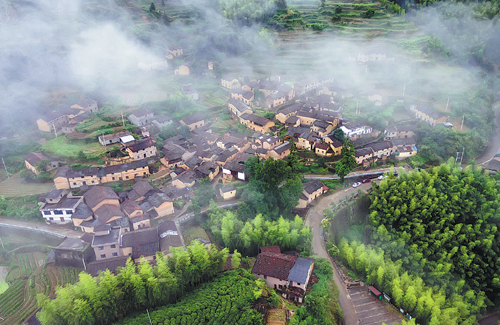

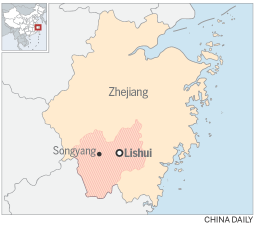

Today's Top News
- Unified national market a new growth launchpad
- US deal a structural challenge for Japan
- Industrial prowess of China a subject of serious study
- US new tariffs 'unfair': Experts
- NDRC recalibrating steps to drive growth, boost demand
- Wartime hero's legacy fortifies Sino-UK bond












